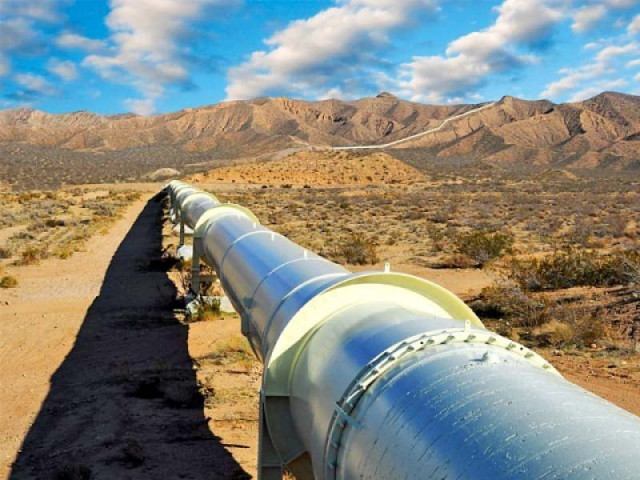Gas crisis looms over Pakistan as some fields may be shut
Reduced output at refineries will lead to lower demand for supplies from fields

Heads of the country’s two gas utilities were removed following the crisis that hit last year. In the year, the government asked the refineries to export furnace oil and set up conversion plants. PHOTO: FILE
Oil refineries in the country may reduce their production levels if power plants do not lift furnace oil, which is an expensive fuel compared to locally produced gas and imported LNG. In the last winter season too, the oil refineries had slashed production and had threatened to shut down their plants following refusal by power producers to purchase furnace oil.
Following the reduction in output of the refineries, the oil and gas producers had to shut down some fields, which resulted in a drop in locally produced gas supply and sparked crisis.
Heads of the country’s two gas utilities were also removed following the crisis that hit last year. In the year, the government asked the refineries to export furnace oil and set up conversion plants.
Oil industry officials, however, argue furnace oil prices in the international market were lower compared to prices of locally produced furnace oil and therefore its export would not be possible. In addition to that, the setting up of conversion plants is a capital-intensive process and will take around three to four years, they say.
“We will take less LNG supplies for power plants and will not run the plants on furnace oil in the upcoming winter season,” Power Division Secretary Irfan Ali told sub-committee of the Public Accounts Committee on Tuesday.
The secretary had repeatedly been telling different forums that LNG-based power plants were outside of the merit order and therefore they could not be operated all the time.
In such a situation, officials said, the stock of furnace oil would start piling up and a same situation could emerge that had been faced last year. They said power producers gave wrong projections of furnace oil and gas demand, which was causing problems for the entire oil and gas industry.
State-run Pakistan State Oil (PSO) had firm agreements with LNG producer Qatar and commodity trading company Gunvor for the supply of 500 million cubic feet of LNG per day (mmcfd). Pakistan LNG Limited also had agreements with Italy’s Eni and Gunvor for the supply of 200mmcfd.
The power sector had been consuming up to 800mmcfd of LNG but the consumption will drop to 100mmcfd in the peak winter season.
These LNG supply agreements are based on a “take or pay” basis. If the power sector does not lift the gas, then the government may divert it to the domestic sector and will have to pay billions of rupees in subsidy.
Ali of the Power Division told the committee that Rs812 billion worth of circular debt had been parked in Power Holding Private Limited to clear the debt. Of the total amount, Rs300 billion worth of subsidy claims were disputed, he said.
He cited different reasons for the accumulation of circular debt which included transmission and distribution losses, less recovery of electricity bills, lack of subsidy allocation in budget and delay in application of tariffs determined by the National Electric Power Regulatory Authority (Nepra).
He claimed that Rs35-40 billion was being added to the stock of circular debt every month in 2018 but the amount had been brought down to Rs20 billion. “It will be reduced to zero in December 2020,” he said.
Talking about the renewable energy policy, Ali said the Power Division was working on it and its draft would be submitted to the Council of Common Interests (CCI) in the next two months for approval.
“Under the new policy, competitive bidding will be carried out which will bring down the tariff to 2 to 2.5 cents per unit. It will improve the energy basket,” the secretary said.
Published in The Express Tribune, September 25th, 2019.
Like Business on Facebook, follow @TribuneBiz on Twitter to stay informed and join in the conversation.



















COMMENTS
Comments are moderated and generally will be posted if they are on-topic and not abusive.
For more information, please see our Comments FAQ